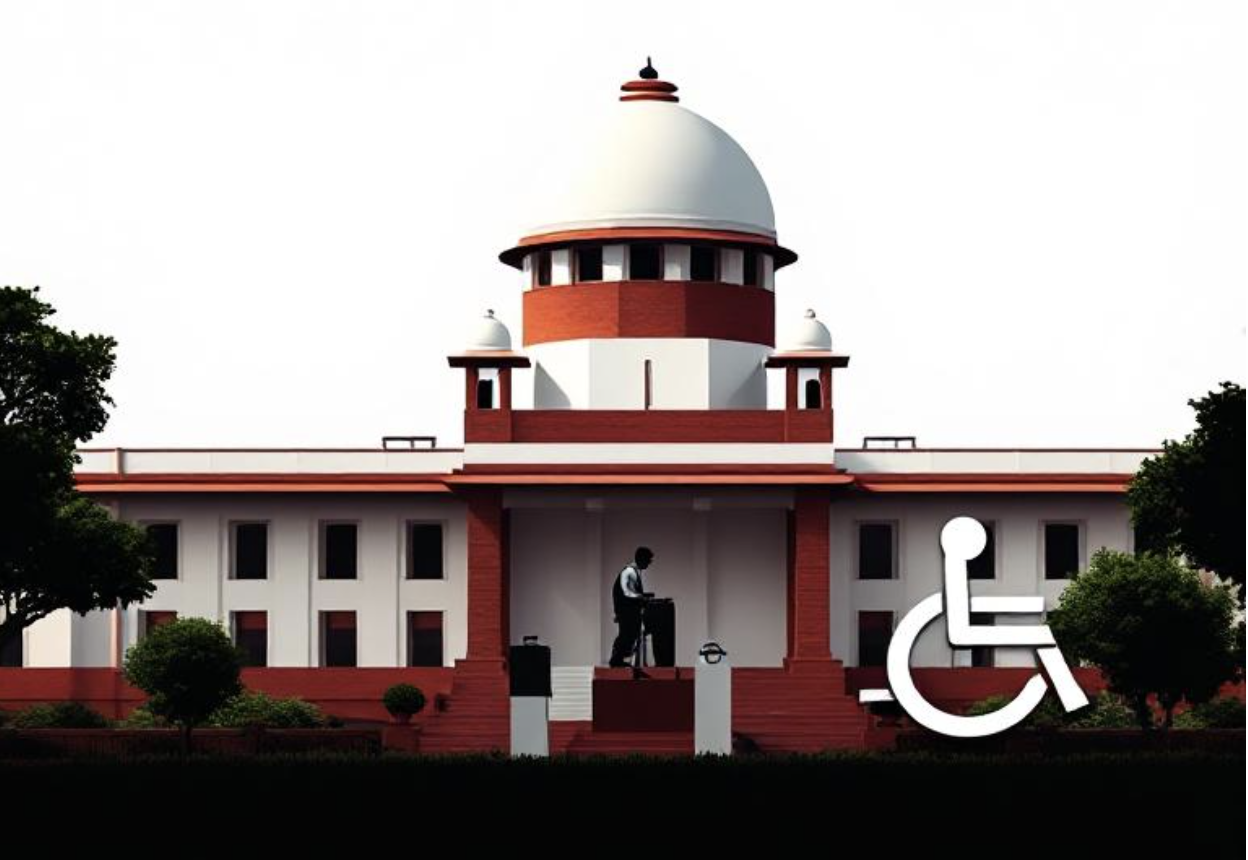Supreme Court Mandates Inclusive KYC: Landmark Ruling for Acid Attack Survivors and Visually Impaired

Author: Paridhi James, 5th year, Mody University of Science and Technology, Lakshmangarh
Introduction
In an important decision supporting accessibility and inclusion, the Supreme Court of India has tackled the problems that acid attack survivors and visually impaired people face when trying to complete required digital KYC (Know Your Customer) processes. The ruling protects the rights and dignity of people with disabilities and sets an example for more inclusive digital systems. The case, based on petitions from Pragya Prasun and Amar Jain, shows how technology can unintentionally leave out vulnerable groups—and how legal action can help fix this.
Facts of the Case
The case involved two writ petitions filed under Article 32 of the Constitution. The first, by acid attack survivors led by Pragya Prasun, challenged the accessibility of digital KYC systems which required blinking or facial gestures for live photograph verification—an impossible task for those with facial disfigurement or eye injuries. The second petition, by Amar Jain, a 100% visually impaired advocate, raised similar challenges for persons with blindness or low vision. Both petitions highlighted how current digital KYC norms, mandated by the RBI Master Directions and other regulatory frameworks, excluded them from accessing essential services like banking, telecom, insurance, and pensions.
Arguments from the Petitioners
Counsel for the petitioners argued that digital KYC systems violate their rights under Article 21 of the Constitution and the Rights of Persons with Disabilities Act, 2016. They highlighted how requiring a ‘live photograph’ through eye-blinking, reading on-screen text, or aligning a face with a camera, was discriminatory. The process lacked accessibility features such as audio guidance, screen reader compatibility, and alternative authentication methods. They urged the Court to direct authorities to frame inclusive guidelines and provide reasonable accommodations for persons with disabilities.
Arguments from the Respondents
Respondents, including the Reserve Bank of India (RBI), Department of Telecommunications, SEBI, and others, submitted that KYC regulations aim to prevent money laundering and ensure secure transactions. They pointed to alternative options like offline verification, Aadhaar authentication, and thumb impressions in certain contexts. However, they acknowledged gaps in implementation and expressed willingness to enhance accessibility measures within regulatory frameworks.
Ruling of the Court
Justice R. Mahadevan, delivering the judgment, recognized the systemic exclusion caused by inaccessible digital KYC procedures. The Court held that technological mandates must not override the constitutional guarantee of dignity and equality. The Court ruled that the denial of accessible KYC procedures infringes Articles 14, 15, and 21. It emphasized that the right to digital identity and service access is an intrinsic part of Article 21. Notably, the Court struck down the RBI’s mandatory “live photo” requirement, declaring it discriminatory against persons with facial or visual impairments.
It directed the Central Government and regulatory bodies to formulate comprehensive, inclusive guidelines that allow alternative modes of identity verification, ensuring accessibility and reasonable accommodation under the Rights of Persons with Disabilities Act, 2016.
The Court issued 20 binding directions, calling for inclusive and accessible KYC systems in compliance with the Rights of Persons with Disabilities Act, 2016.
Key Guidelines Issued by the Court
1. Define clear accessibility standards for digital KYC under RPwD Act, 2016.
2. Develop inclusive authentication modes such as voice recognition, thumb impressions, or assisted verification.
3. Avoid mandating eye-blinking or facial gestures as the sole test for liveness.
4. Enable screen reader-compatible interfaces for all digital KYC platforms.
5. Allow offline KYC and physical verification without discrimination.
6. Introduce audio guidance for navigation and image capture in KYC apps.
7. Permit guardians/assistants to assist in video KYC with documented consent.
8. Mandate training for KYC officials on disability sensitization.
9. Issue circulars clarifying that non-blinking should not lead to rejection.
10. Set up grievance redressal cells specialized for persons with disabilities.
11. Require digital platforms to follow Indian accessibility standards IS 17802.
12. Allow thumb impression as equivalent to signature for KYC purposes.
13. Provide in-app live assistance or helpdesk for disabled users.
14. Ensure that digital KYC apps offer audio captcha as an alternative.
15. Make bank, telecom, and insurance KYC policy accessible under GIGW standards.
16. Prohibit denial of essential services solely for inability to complete digital KYC.
17. Allow attested paper-based KYC for exceptional cases including PwDs.
18. Audit KYC platforms for compliance with accessibility standards annually.
19. Integrate video-based customer verification with assistive technologies.
20. Monitor implementation and compliance with RPwD accessibility mandates.
Significance of the Judgment
This judgment marks a watershed moment in the intersection of disability rights and digital governance. It recognizes that accessibility is not optional but integral to the right to live with dignity and equality. It demonstrates how constitutional principles, statutory mandates, and international obligations converge in protecting the rights of marginalized groups. The ruling provides a blueprint for future litigation and policymaking in the realm of inclusive technology.
Check out here for more legal updates: https://legalwiki.co/


![Senior Associate at JSA [General Corporate, PQE 3-7 Yrs]: Apply Now!](/content/images/size/w600/2026/02/Legalwiki-5.png)
![Legal Associate at Unilever Bangalore [Contract Lifecyle, PQE 3-5 Yrs]- Apply Now!](/content/images/size/w600/2026/02/Unilever.webp)
